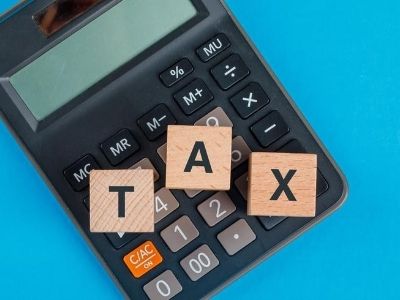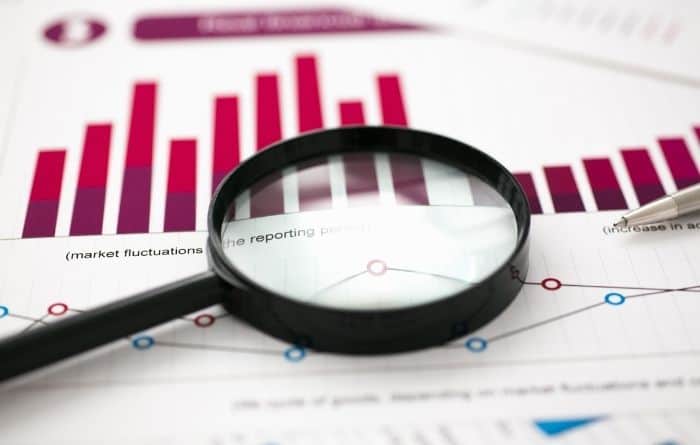Uplifting Singapore SMEs with the Start-up Tax Exemption Scheme

Singapore’s government offers many opportunities to boost the nation’s entrepreneurial ventures. The Start-Up Tax Exemption (SUTE) proves to be a very good initiative by the Singapore government. Along with the Singapore Inland Revenue Authority (IRAS), it has launched tax-saving measures that target companies, particularly new ventures in the country.
The Singapore Ministry of Finance grants companies a particularly unique tax exemption during the first 3 years of valuation. Further, this policy helps new businesses to emerge out successfully by decreasing the corporate tax payable. As per the country’s economic market, all emerging businesses are liable to pay corporate charges during their first five years of existence from their usual taxable profits.
Basic Tax Deductions Under SUTE
There will be a standard chargeable profit that applies to the net profits incurred by the corporation (e.g. dividend income). It is upon the elimination of permissible business costs (e.g. staff medical expenditures). Your company will be liable for paying tax if you have gained profit by trading your products across the board. You are also liable if you have received money from outside for your company within the country.
Revenue, nevertheless, is not going to be charged for a tax deduction because it comes to be as a capital benefit. Whereas, the year of assessment is the duration during which the revenue of the entity must be evaluated. This is useful to find out the financial liability of the business for tax purposes. Generally, the duration of one YA is twelve months. Any duration serves as the “basis time” which usually lasts for 12 months.
Eligibility for Privileges
A company that is eligible for the SUTE can get its benefits for the first 3 successive YAs. The privilege should begin operating since the very first YA. It is still eligible even when the business has so far not started to make any practicable sales. Therefore, if the corporate entity only begins producing tax-deductible revenue and profit in its third YA, it would apply for just a 1-year exemption under the SUTE.
How to Determine the First YA of a Company?
Your company’s incorporation date plays a major role in deciding the first date for the year of assessment. Not only that, but the first YA of a company is also determined by the date on which you decide to close the accounts of your company.
Let’s say, Company A established on 1st October 2019 and it selects the closing date of the financial year as of September 31. It suggests that the first collection of records for that company will, therefore, end on September 31, 2020. Due to this, 1 October 2019 to 31 September 2020 will be considered for the company as its first year of assessment base period.
What is the Amount of Tax Exemption Under the SUTE?
After the revised policy of the Start-Up Tax Exemption scheme, tax relief on regular chargeable profits of a maximum of 300,000 SGD is granted for every initial 3 subsequent years of operation.
- Throughout the first 100,000 SGD, the excluded sum becomes 100,000 SGD following 100 per cent exclusion.
- In the next 200,000 SGD, the limit is 100,000 Singapore dollars with a fifty per cent deduction.
- The minimum excluded sum for turnover of a maximum of 300,000 SGD is therefore 200,000 SGD.
Which Companies Qualify for SUTE?
Companies must meet the following conditions to apply for the previously discussed exemptions:
- The business would need to be registered in Singapore.
- For that matter, the business has to be tax-resident within Singapore.
- The company’s overall equity capital has to be beneficially owned by up to 20 owners over the base term for the YA. Additionally, all board members have to be groups of people or a minimum one board of directors is a person owning at least ten per cent stake in the company.
When Does a Company Become a Singapore Tax Resident?
If the company performs operation and administration of the enterprise in Singapore, it acts as a tax-resident. The terms operation and administration means the decision-making concerning the key problems of the company, such as those about business policies and planning. Broadly speaking, the address of the executive committee sessions is among the key indicators in deciding the location. This including of where business operations and administration occur.
Do Companies Limited by Guarantee also Qualify for SUTE?
To get the perks of the Start-Up Tax Exemption, the limited companies must follow the rules below:
- The company must have a group of individuals as its board of directors all through the year of assessment; OR
- The board of directors of the company must consist of a minimum of 1 person. This board’s contribution towards the business accounts to a minimum of ten per cent of the entire shareholders’ contribution during a particular base period when the business is winding up.
How to Claim Tax Exemption under SUTE?
To get benefits of tax exemption without any obstruction, the company must continue to submit all its corporate tax as per the schedule. The exempted money for your business will automatically get calculated by the Singapore Inland Revenue Authority based on your company’s tax records. Further, the companies should not commit any error while filing the tax returns to avoid penalties.
Is a Company Still Eligible for Tax Exemption After its Third YA?
If the business got established for more than 3 years, then it will no longer be eligible to receive an exemption from the SUTE scheme. Having said that, the business entity can still claim for partial tax exemption.
What is the Tax Exemption Amount under the Partial-Tax Exemption (PTE)?
Industries that do not follow the Start-Up Tax Exemption eligibility requirements will be able to apply for a partial tax exemption status. The Partial tax deduction policy got launched the year 2008. It is for the taxed income of SMEs collectively.
As per the Partial Exempt, tax exemption thresholds of a maximum 300,000 SGD on regular chargeable wages will be as described in the following:
- In the first 10,000 SGD, the deductible sum is going to be 7,500 SGD with a 75 per cent deduction
- Again, in the next 290,000 SGD, the exempt money from the tax will be 145,000 SGD following a fifty per cent tax exemption
- Then the gross excluded profit sum up to 300,000 SGD stands to be 152,500 SGD.
Abuse of Tax Exemption Schemes
IRAS has found out that a large number of new businesses are using proxy entities. This helps to get more leverage of the tax exemption policy. These proxy entities do not consist of any legal business registered under the name in the country or outside. Some of them are operating in Singapore, consisting of very less or no individuals as employees. Their records display very few purchases and poor capital base.
The abuse of this scheme occurs:
- When a company gets a lot of profit and after that which divides revenue among a number of proxy business entities.
- When an established profitable venture charges dues or costs for good commercial motives.
- It is a crime to misuse any tax benefits. Doing so can result in serious punishment and/or penalties.
Conclusion
If you wish to know more about the Start-up Tax Exemption scheme, then it is advisable to get in touch with the most prominent advisory firm of Singapore, 3E Accounting. They are knowledgeable and highly experienced with the tax schemes and Withholding Tax Services. You can have their valuable assistance in regard to the operation of your business.










